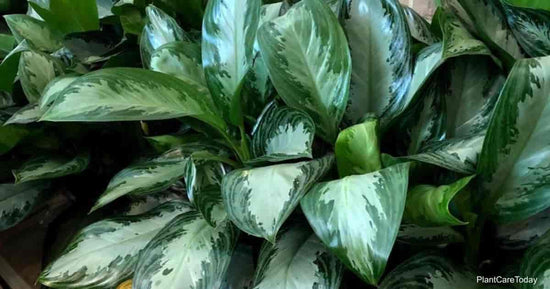Watering seems a pretty simple task, yet requires care and skill to do correctly. Our houseplants are completely at our mercy when it comes to receiving this key resource. Too much water can suffocate roots and grow fungus. Too little water and the plant begins to wither as the roots dry out.
We recommend confirming the soil's moisture before watering by inserting your finger 2-3 inches into the soil. Alternatively, you can use a plant Moisture Meter to read the soil. To make it simple, here is what you should consider when watering each plant in your collection.
1. The Type of Plant
Different plants depending on their origin and species have different watering needs. Tropical plants prefer to be watered when their soil has dried about 25-50% down. Cacti and succulents, on the other hand, enjoy for their soil to fully dry out in between waterings. They also have unique storage systems that allow them to sustain brief periods of drought.
Understanding your plant's natural climate will give you a good idea of the conditions they prefer and how often you can get away with watering.
2. The Indoor Environment
Soil dries out faster in rooms with moderate temperatures and decent air circulation. If your plants are in areas of the home with cooler temps or stagnant air, you'll want to factor this into how often you are watering your plants.
3. Size of the Plant
Plants in smaller pots dry out faster than plants in larger pots. This is why you'll find the leaves of miniature plants wilting every few days while plants in a 10 inch pot might take 10+ days before they're ready to be watered again.
4. Drainage
Soil and pot drainage directly impact how quickly soil dries. Planters with drainage holes are better for root systems because the water has somewhere to escape, rather than collecting at the bottom and waterlogging the roots. Likewise, soil also needs to have excellent drainage to make the most out of your watering routine.
Soil can have poor drainage if it is too tightly compacted into the pot (i.e. if you've packed it down too much with your hands when repotting). The quality of the soil also affects the drainage. Amendments like sand and perlite enhance drainage, allowing water to easily flow through and be absorbed by the roots.
5. Time of Year
This one is easy! Plants actively grow during spring and summer and thus, need water more often. Longer days and warmer temperatures also dry the soil out faster. Fall and winter, on the other hand, are seasons of rest. The plant requires less and with shorter days, the soil dries slower as well.
How to Water
Watering your plant evenly ensures optimal growth. You’ll want to water the soil all around, not just in the center. Roots grow toward moisture and watering the full area encourages them to spread and develop more robustly. The type of water you use also matters. Here is the list of most preferred to least preferred waters by plants:
1. Rainwater
Rainwater is soft water free of salts and treatment chemicals. It's full of natural minerals that are necessary for plant growth and will make your plants grow bigger and healthier.
2. Springwater
Bottled spring water may contain natural minerals that are needed by plants, depending on the water source. It's typically free of the harsh additives found in tap water.
3. Distilled Water
Distilled water is a type of purified water that has had both contaminants and minerals removed. Therefore, distilled water won’t harm your plant but it also lacks the minerals are removed that plants enjoy.
4. Tap Water
Tap water should be left out overnight. This allows those harsh minerals and salts to evaporate! It also allows the water to become room temperature, which is better for the roots. If you ever notice while build up on the soil, it may be from the salts and minerals that have collected. It's a good idea to replace with fresh soil more often if you live in an area with hard water quality.
Congrats, you're a watering expert!





